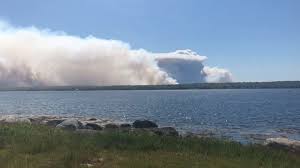Understanding the Fire Ban in New Brunswick 2023

Introduction
As wildfire season approaches, the New Brunswick government has implemented a fire ban across the province, a crucial measure to protect both public safety and the environment. With rising temperatures and dry conditions, fire bans become a necessary tool to mitigate the risk of uncontrolled wildfires, which can have devastating effects on local communities, wildlife, and air quality.
Current Situation
The fire ban in New Brunswick was announced earlier this month amid increasing concerns over the dryness of forested areas. According to the Department of Natural Resources and Energy Development, the province has been experiencing a significant lack of precipitation, leading to heightened fire risks. The ban includes restrictions on open burning, campfires in designated non-fire zones, and the use of certain machinery that could spark a fire. These measures are designed to prevent potential emergencies as wildfires can rapidly spread under dry and windy conditions.
Local Community Response
Local residents and businesses have expressed mixed reactions to the fire ban. Some community members support the decision, recognizing the urgency to protect the environment and human life. “We have to prioritize safety above all else,” commented a local firefighter in Fredericton. However, others, particularly those in the camping and outdoor recreation industries, have raised concerns about the impact on tourism. Local campgrounds in areas like Fundy National Park have reported cancellations and a decline in visitors due to the restrictions.
Historical Context and Outlook
This fire ban is not unusual for New Brunswick during this time of year; however, the recent trend of prolonged drought conditions raises concerns about the frequency and intensity of future bans. Historical data indicates that the province has seen an increase in wildfire incidents over the past decade, with hotter summers and milder winters contributing to these challenges. Experts suggest that climate change is likely to exacerbate these patterns, making fire bans a more regular occurrence in New Brunswick moving forward.
Conclusion
As New Brunswick navigates the challenges presented by the fire ban, it is essential for residents and visitors to stay informed and adhere to the restrictions in place. The government’s proactive measures not only aim to safeguard the environment but are also vital for ensuring community safety. Looking ahead, it is crucial to foster discussions around sustainable practices and community preparedness to better handle the increasing risks associated with wildfires in the region. By staying vigilant and responsible, New Brunswick can work toward minimizing the impact of these natural threats.









